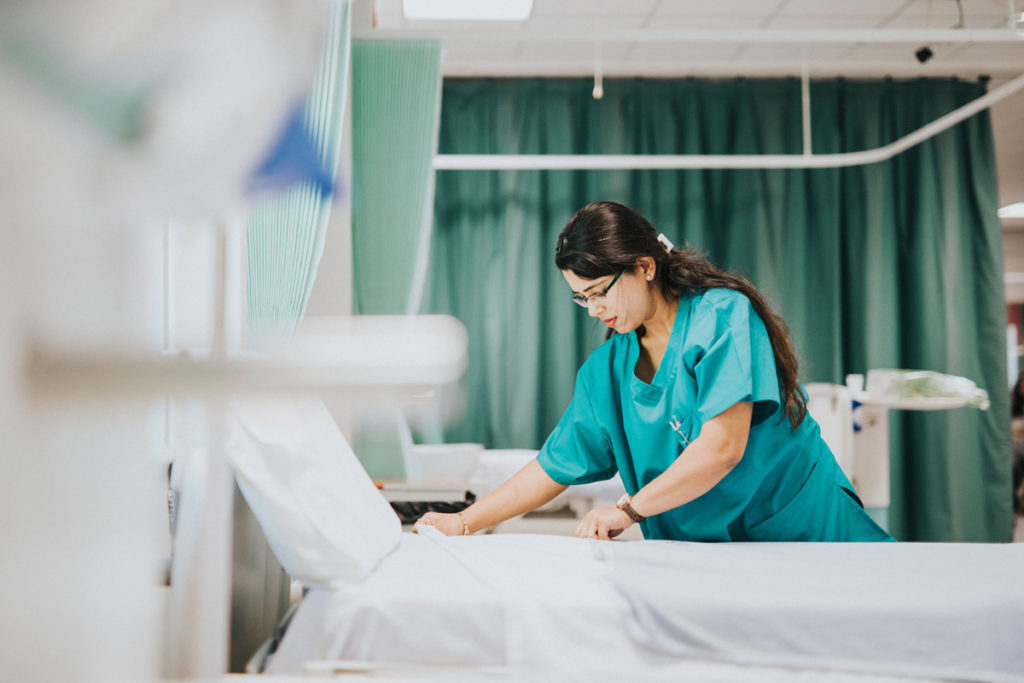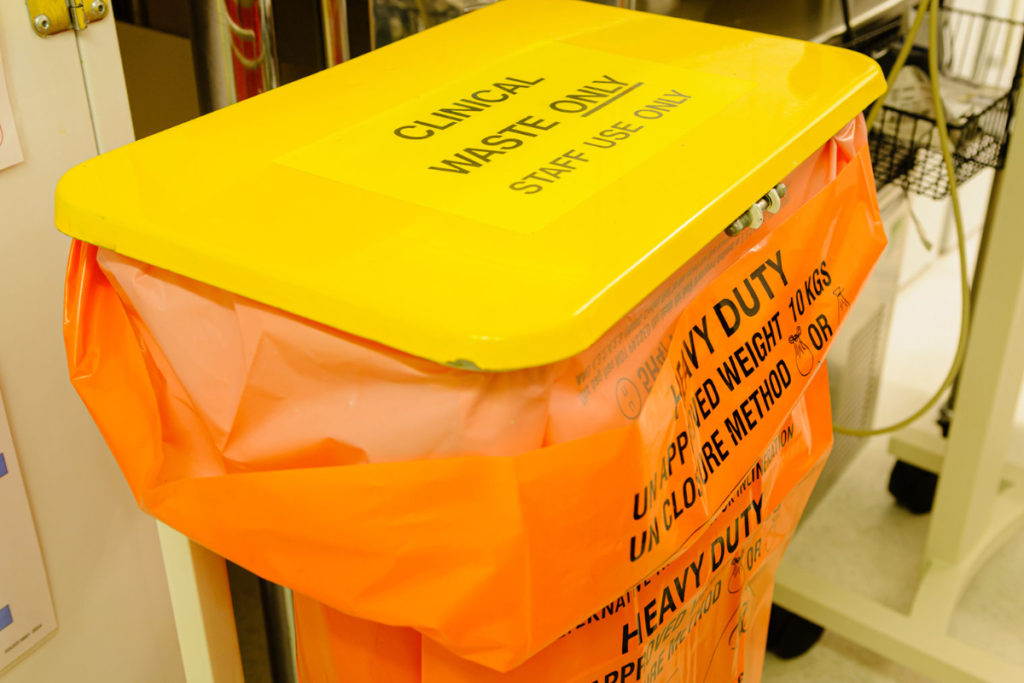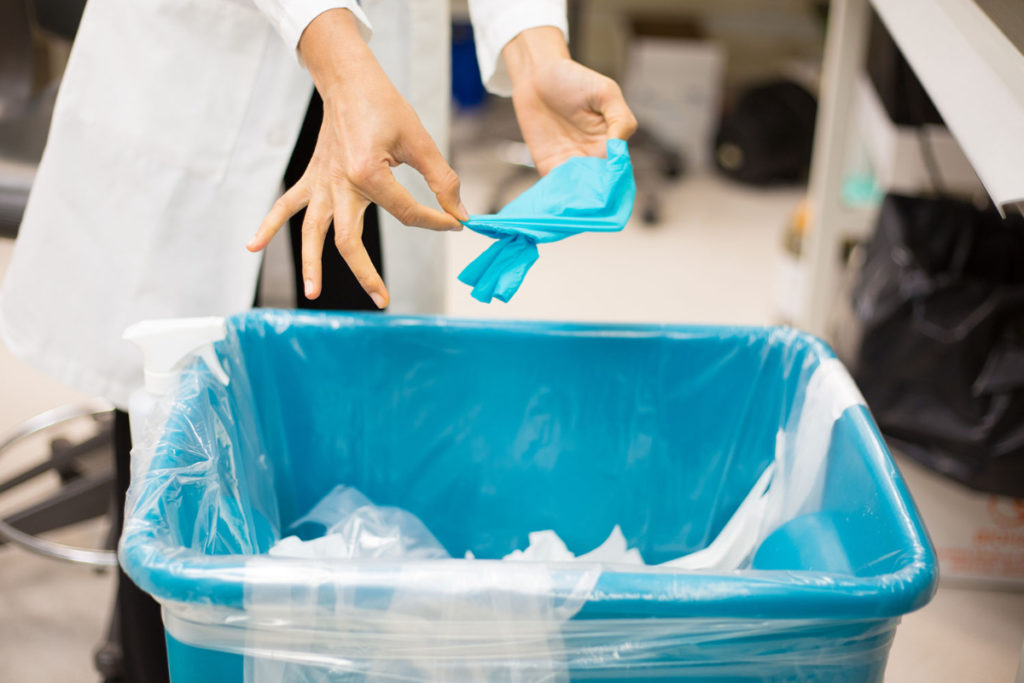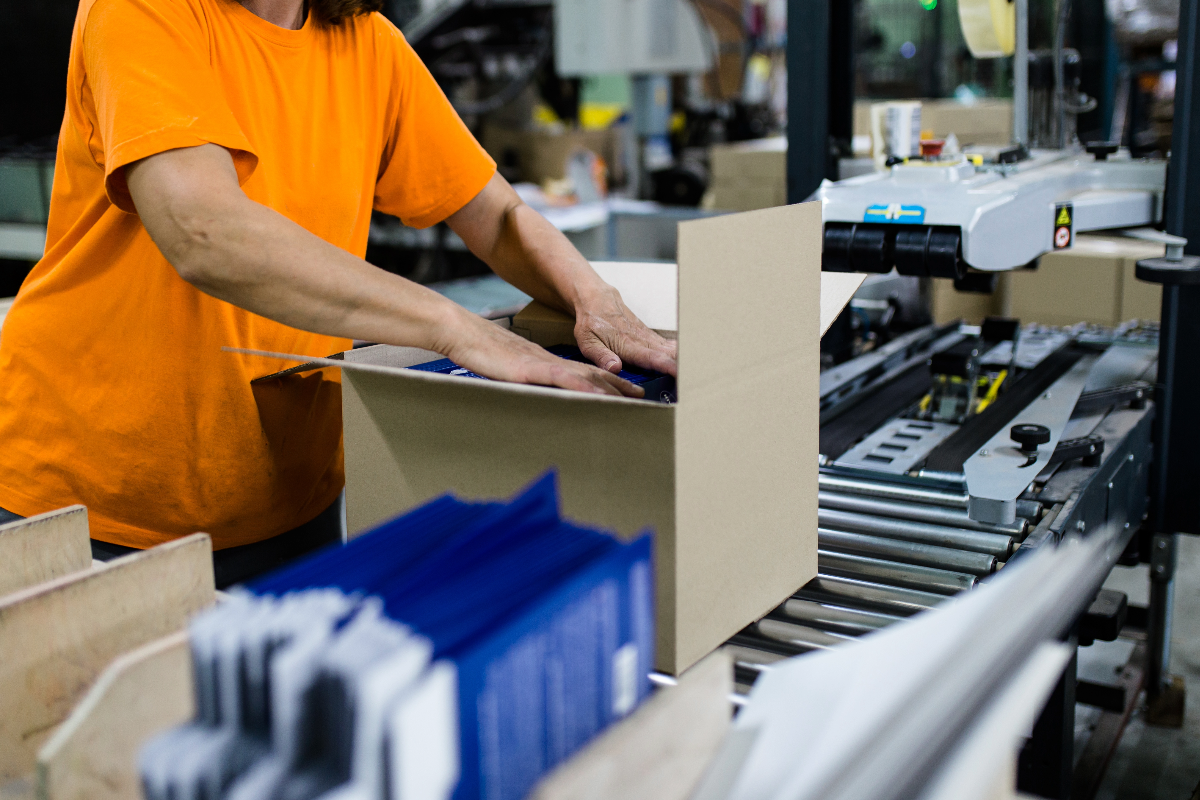BLOG
What is clinical waste and how to dispose of it?

Clinical waste needs to be handled and disposed of correctly to make sure that everyone who comes into contact with it is safe. But what is classed as clinical waste and how can you ensure it’s stored and disposed of correctly?
What do we mean by clinical waste?
Clinical waste is any waste that could potentially cause infection to anyone coming into contact with it. This includes human or animal tissue, bodily fluids such as blood or excretions, dressings, needles and syringes and other sharps.
The official definition as set out in the Controlled Waste Regulations 1992, is:
“Any waste which consists wholly or partly of human or animal tissue, blood or other body fluids, excretions, drugs or other pharmaceutical products, swabs or dressings, or syringes, needles or other sharp instruments, being waste which unless rendered safe may prove hazardous to any person coming into contact with it; and
any other waste arising from medical, nursing, dental, veterinary, pharmaceutical, or similar practice, investigation, treatment, care, teaching or research, or the collection of blood for transfusion, being waste which may cause infection to any person coming into contact with it.”
The definition of clinical waste only includes waste that comes from healthcare activities, not from households, although household waste that includes these items does need to be disposed of carefully. This includes any waste from hospitals, care and nursing homes, dentists, pharmacies, vets, and laboratories.
Any dressings, swabs, plasters, bandages, stoma bags, IV bags, and bedpans are classed as clinical waste.


Why does clinical waste need handling carefully?
If you create this type of waste as part of your business activities, you need to be aware of your obligations to dispose of clinical waste in the correct manner. If it isn’t dealt with correctly, it can spread disease and infection. Anything which has human waste or fluids on it has potential to cause infection, contaminating those that handle the waste or other in your business if it is not stored correctly.
Lab waste can also be harmful to people and the environment if it is not disposed of correctly, so this needs careful handling too. Pharmaceuticals have the potential to fall into the wrong hands, and if ingested by the person it is not prescribed or intended for, can cause illness and other consequences.
What should I do with clinical waste?
Clinical waste needs to be stored carefully to avoid spreading infection. Do not overfill containers or bins storing this type of waste. It should be stored separately from other waste. You should have a separate foot-operated pedal bin or container lined with a bag, so you do not have to touch any of the waste. The container should be stored safely and securely, to avoid damage, spillage, or tampering.
Sharps waste, such as needles, should be stored in a special sharps bin, to avoid anyone coming into contact with the needle. Sharps bins are anti-tamper, so once you have put the waste in, it is safely stored. Needles, syringes, and finger-pricking devices should be disposed of in the sharps bin.
Medicines and pharmaceuticals should be kept securely in a locked container or cabinet. They should never be put in the bin or disposed of down the sink or toilet. You should also have a process for logging which pharmaceuticals you are storing for disposal, to ensure that they are not tampered with.
What happens to clinical waste once it’s collected?
The majority of all clinical waste is incinerated in a specialist facility. This is to make sure that all the organic material and anything that could cause infection is thoroughly destroyed. Waste that is incinerated is used to generate energy.
How do I make sure my waste is handled correctly?
It’ part of your Duty of Care to ensure that any of your hazardous waste is disposed of correctly. Speak to your waste management supplier to make sure they are handling your waste correctly. You should be issued with special, separate bins for your clinical waste. Make sure your waste carrier is licenced and can tell you where and how the waste has been disposed of.
Contact us
If you are unsure of how to manage your clinical waste, contact one of our waste specialists. The team at Flame UK can help you make sure your clinical and hazardous waste is being handled correctly and safely. Get in touch today to find out more.




